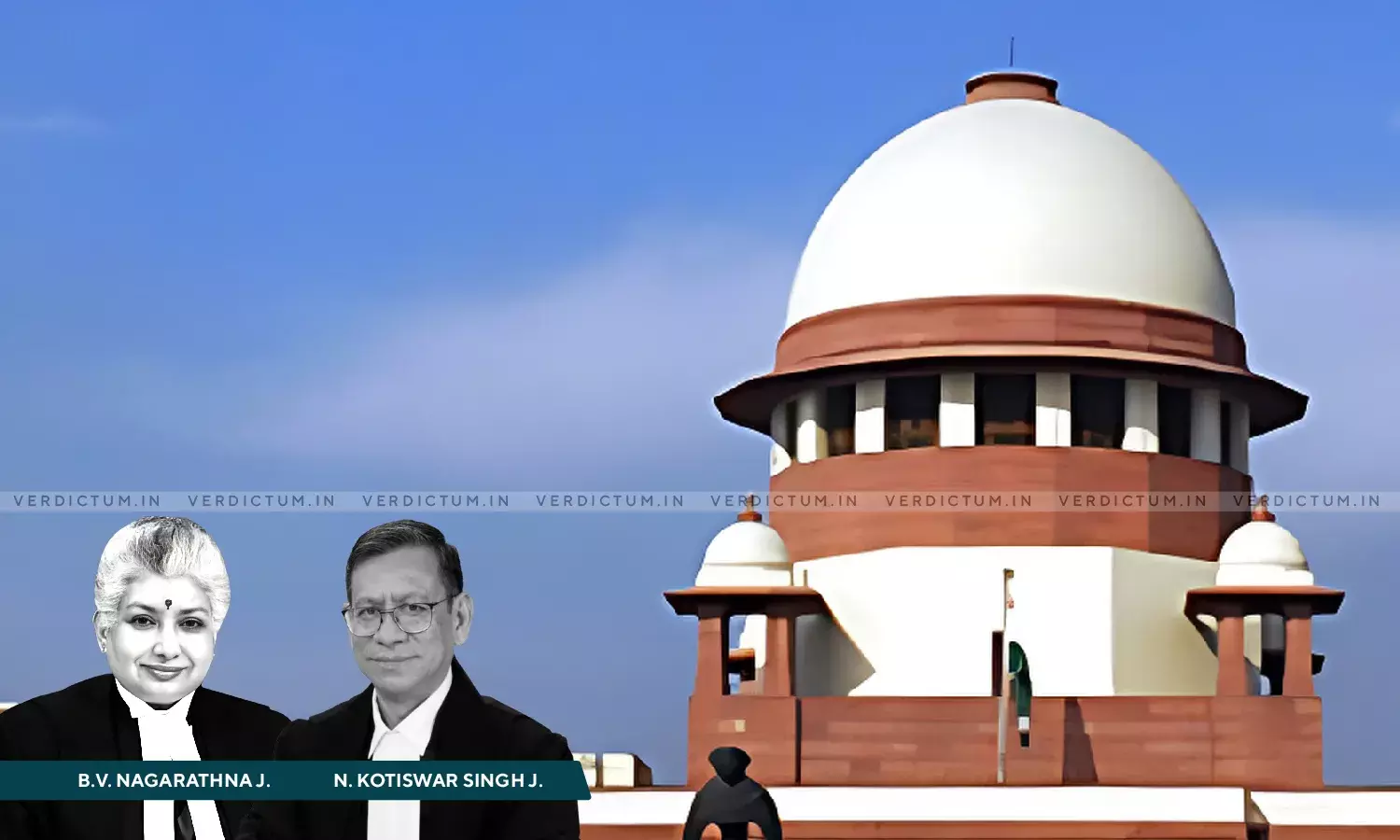Mere Breakup Of Relationship Between Consenting Couple Cannot Result In Initiation Of Criminal Proceedings: Supreme Court Quashes 'Rape Case'

The Supreme Court held that a consensual relationship between parties at an initial stage cannot be given a colour of criminality when the said relationship does not fructify into a marital relationship.
The Court quashed the FIR filed under Sections 376(2)(n) and 506 of the IPC and set aside the Delhi High Court’s Order which had refused to quash the FIR holding that both the Appellant and the complainant were educated adults in a consensual relationship, and therefore, continuation of criminal proceedings would amount to abuse of the process of law.
The Bench of Justice B.V. Nagarathna and Justice Nongmeikapam Kotiswar Singh held, “The relationship between the parties was cordial and also consensual in nature. A mere breakup of a relationship between a consenting couple cannot result in initiation of criminal proceedings. What was a consensual relationship between the parties at the initial stages cannot be given a colour of criminality when the said relationship does not fructify into a marital relationship. Further, both parties are now married to someone else and have moved on in their respective lives. Thus, in our view, the continuation of the prosecution in the present case would amount to a gross abuse of the process of law. Therefore, no purpose would be served by continuing the prosecution.”
AOR Sunil Kumar Agarwal represented the Appellant, while ASG Vikramjeet Banerjee appeared for the Respondent.
An FIR was lodged by the complainant alleging that the Appellant had forced her into a physical relationship multiple times. The complainant claimed that the Appellant initially established contact with her in 2017 and later in 2019 had a forceful sexual relationship with her. She alleged that the Appellant repeatedly forced her into physical relations and later refused to marry her.
Aggrieved, the Appellant filed a petition under Section 482 of the CrPC before the High Court to quash the FIR. The High Court dismissed the petition noting that the allegations in the FIR and the complainant’s statement were sufficient to constitute the offences under Sections 376(2)(n) and 506 of the IPC.
The Supreme Court noted that the complainant continued to meet the Appellant or maintain a prolonged association or physical relationship with him in the absence of voluntary consent on her part.
“Moreover, it would have been improbable for the appellant to ascertain the complainant's residential address, as mentioned in the FIR unless such information had been voluntarily provided by the complainant herself. It is also revealed that, at one point, both parties had an intention to marry each other, though this plan ultimately did not materialize,” the Court noted.
Referring to its earlier Judgment in Pramod Suryabhan Pawar v. State of Maharashtra (2019), the Court reiterated that "consent" must involve deliberate and reasoned decision-making, and a consensual relationship cannot be later construed as rape due to its eventual breakdown.
Consequently, the Court held, “Therefore, there cannot be a case of criminal intimidation involved as against the complainant. We do not find that there was any threat caused to the complainant by the appellant when all along there was cordiality between them and it was only when the appellant got married in the year 2019 that the complainant filed a complaint. In the circumstances, we do not think that the offence under Section 503 read with Section 506 of the IPC has been made out in the instant case.”
Accordingly, the Supreme Court allowed the Appeal.
Cause Title: Prashant v. State of NCT of Delhi (Neutral Citation: 2024 INSC 879)
Appearance:
Appellant: AOR Sunil Kumar Agarwal; Advocates Nikhil Tyagi, Atul Agarwal, Rakesh Kumar Khare, Kirti Sharma and Shreya Saurabh
Respondent: ASG Vikramjeet Banerjee; Advocates Ajay Kumar Prajapati, Ayush Anand. Annirudh Sharma Ii and Veer Vikrant Singh; AOR Mukesh Kumar Maroria

